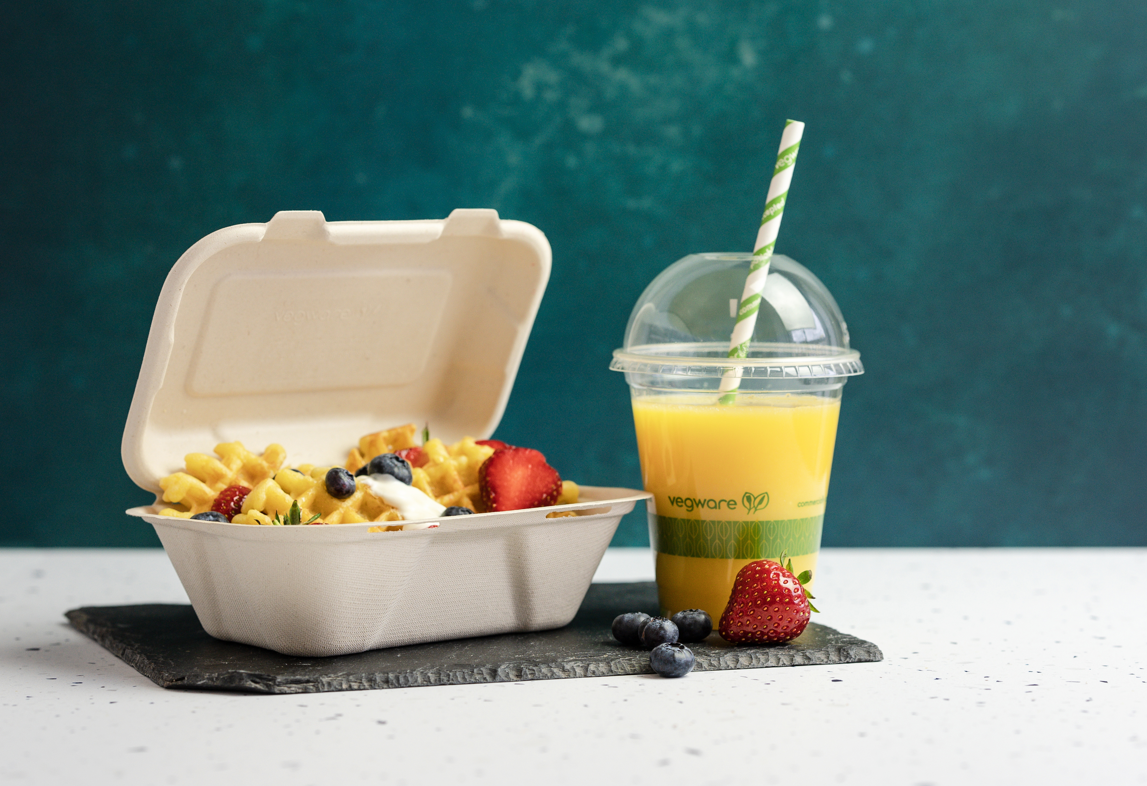
As we approach 2023, sustainability remains a high-ranking theme within the packaging industry and businesses face the challenge of meeting environmental targets and consumer needs.
The notion of a circular economy is an idea that is backed by governments, consumers and environmental agencies alike. Across the globe different initiatives and government legislation have helped to drive things forwards, encouraging businesses to step away from the use of materials deemed harmful to the environment and instead invest in eco-friendly alternatives.
One option available on the market is compostable packaging. Compostable packaging is seen as a practical, sustainable solution for single-use food-contaminated items. Vegware, an award-winning, plant-based compostable food packaging provider aims to provide innovative, eco-friendly options to assist businesses in operating sustainably.
Compostable packaging has been growing with increased popularity and in 2021 The Sunday Times named Vegware Scotland’s fastest growing exporter.
Packaging Gateway’s Ryan Ellington spoke to the new managing director at Vegware, Helen Mathieson about how and why compostable packaging is growing in popularity.
Packaging Circularity
Mathieson told Packaging Gateway circularity is a topic that is held in high regard at Vegware and sustainability is the ethos the company is built around.
“We have a team of in-house experts who help our customers understand how to get food waste and the product that carries it into a composting environment,” said Mathieson.
Mathieson explained Vegware has a team of waste management consultants that work with composting facilities, running trials to ensure its products are suitable and they work with waste collectors around the UK to set up partnerships with clients to keep its products within a closed loop.
“This has been a big success story for us. It’s been a real passion and a focus for the last decade or more. Now there are collection services available for our clients in over 49 of the UK’s biggest towns and cities.”
Many businesses have a focus on looking at ways in which packaging waste can be reduced and invoking a circular approach is seen to be a highly sustainable option.
“What some people call waste, we see as a resource that can stay here in the UK. Our products can be composted together with garden waste and food waste. This is then turned into compost which is important for healthy soil and we’re really pleased to be part of that circular economy.”
Mathieson explained collaborations with other companies are hugely important to understand what customers want and to create innovative products that suit their needs and keep their products within a circular economy.
“There is a duality approach when it comes to new product development. We work with our clients to make sure we’re fulfilling the needs they have. We also have a product specialist and a product team who focus on the other opportunities that are out there. They look for gaps in the market that we can open up to, in order to establish new relationships that benefit everybody.”
The future of packaging
Mathieson also stated that it’s important to have an eye on the future and be aware of any new legislation.
“We look down the line to see what legislation changes are in the pipeline. For a long time we have been preparing for plastic cutlery being banned around the EU. It’s now banned in Scotland with England and Wales thinking or planning to do the same, so we know that our clients are going to need a compliant alternative.”
In June 2022 Vegware received a packaging award at the Free From Expo conference in Barcelona and was a runner-up at the Sustainable Food Awards in Amsterdam.
“Wooden cutlery sometimes has mixed reviews and so we’ve been developing an alternative that meets the needs of our client base. This year we’ve won an award for our paper cutlery that performs really well and ticks all the boxes for our client base.
“I think that’s a tangible, practical example of how we’ve collaborated within the team and with our client base to make sure we’ve got innovative product solutions for our clients.”
According to Mathieson, consumers want sustainable packaging and there is real excitement about products made from plant-based materials. Mathieson also said that legislation would help businesses and consumers dispose of compostable waste properly rather than having it go to landfill.
“There’s a huge opportunity and Italy is a brilliant example in terms of how they have designed their systems. About a decade ago there was a huge change in Italy where they started banning standard plastic bags and insisted on compostable shopping ones instead, which also helps food waste go into the right bin cleanly. If you’re using plastic bags to get your food waste to food waste recycling, you can never get rid of bits of plastic as it’s impossible to get plastic shreds out of that system.
“The facilities dealing with that organic waste realised it was a really good way to help reduce plastic contamination. In Italy you now have what is called the organics bin and you can put compostable packaging in there as well as food waste. It’s a system that is very well understood.”
When asked what more can be done as a society to encourage a compostable circular economy, aside from following a model similar to that in Italy, Mathieson stressed the importance of consumer education and understanding the credibility of compostables and a closed loop system.




